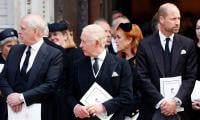Pakistan – from a secure progressive society to what it is today
Delving into the various stages of Pakistan’s existence, writer Najma Shamsi in her latest offering describes the period in Pakistan’s history from 1947-64, which according to her was very secure and progressive.
Speaking at the launch of her book ‘Jasmine and Journeys: the life quest of a South Asian Woman’ at the Arts Council Monday evening, Najma described how very tolerant Pakistani society was as she nostalgically ruminated over the Pakistan of yore. Then, she said, came the era of dictatorships which were highly repressive and suppressed the flowering of progressive thinking and trends.
“This kind of retrogressive thinking, coupled with the personal interests of individuals, was what was responsible for the East Pakistan crisis resulting in the amputation of Pakistan and the birth of Bangladesh”, she said.
Taking a neutral view of the situation in the former East Pakistan [now Bangladesh], she laid the blame equally on both sides of the fence. She regretted that the people of Pakistan never bothered to learn the Bengali language even though it was the language of the majority and was such a sing-song sweet language. “We never bothered to learn to appreciate their culture and remained aloof from them,” she said.
Mentioning the Ziaul Haq era, Najma said his repressive legislations did great harm to society, socially and intellectually. She described the days of her residence in East Pakistan and her happy associations there. Commenting on the changes that occur in life, she described her student days in Rawalpindi and Karachi and then the erstwhile East Pakistan. She also described how the Punjabi of the Saudagran morphed into the Urdu of Dehli.
Earlier, she narrated the migration of the people of the Punjab and formation by them of the Dehli-Punjabi Saudagran, a community that she herself belonged to.
Najma’s book is history and autobiography combined to give a lucid account of her journey from Pakistan to Canada. It is the profound account of a family struggling with the issues of our times like migration, diaspora and prejudice, and reflecting joy, heartbreak, hope and courage. Even though the book starts off as a historical account of her children and grandchildren, it ends up as something far more substantial, a precise and fascinating narration of the cultural and political history of the Subcontinent. She describes the various stages of social change citing examples from her own family members and ancestors.
Earlier, Professor Muhammad Rafi, the former principal of Islamia College, Karachi, most nostalgically made the 50s and the 60s come alive with his narration of Radio Ceylon’s most popular programme, the Binaca Geetmala, the Beatles, Paul Anka and the time when both Najma and he were in Karachi.
Rafi most fondly reminisced that point in time. “Our generation has seen changes and times the coming generations will never know,” he said.
He praised Najma’s book as a very well, precisely punctuated work. Citing page 88, he fully agreed with the observation of the author about the Objectives Resolution of 1948/49, saying, “It indeed had given rise to lots confusion at a later stage which gave rise to divisions and fissures in society. His talk was punctuated with lots of wit and humour.
Zohra Yousuf, the former chairperson of the Human Rights Commission of Pakistan, referred to the title of the book as highly evocative. She recalled Najma’s role in the Women’s Action Forum (WAF) and termed her style as highly honest and candid. She fondly reminisced about her association with Najma while the latter was in Karachi.
Noted intellectual, activist, and former federal minister Javed Jabbar, narrated his close acquaintance with Najma and her late husband Khaleeq from the old days of East Pakistan. Lauding Najma’s book, he praised her tenacity, of which sensitivity was also an integral part, he said.
It was these qualities, said Jabbar, coupled with her journalistic acumen that helped her bag the Queen Elizabeth Diamond Jubilee Award in Canada. Najma was rewarded with the honour for her services to education. She also pioneered a branch of The Citizens’ Foundation (TCF) in Canada.
-
 Gigi Hadid Talks About 'relieving Tension' Amid Having Hashimoto's Disease
Gigi Hadid Talks About 'relieving Tension' Amid Having Hashimoto's Disease -
 Sarah Ferguson Is 'persona Non Grata', Prince William Makes It Clear To Everyone
Sarah Ferguson Is 'persona Non Grata', Prince William Makes It Clear To Everyone -
 Northern Lights Alert On Valentine’s Day: How, Where & Best Time To Watch Auroras
Northern Lights Alert On Valentine’s Day: How, Where & Best Time To Watch Auroras -
 Dennis Quaid Reveals What Keeps His Marriage To Laura Savoie Healthy
Dennis Quaid Reveals What Keeps His Marriage To Laura Savoie Healthy -
 Mustafa Suleyman Says Microsoft Is Building Its Own AI Superintelligence
Mustafa Suleyman Says Microsoft Is Building Its Own AI Superintelligence -
 Jessica Alba, Cash Warren Finalize Divorce After 16 Years Of Marriage
Jessica Alba, Cash Warren Finalize Divorce After 16 Years Of Marriage -
 China’s AI Boom Takes Center Stage At Spring Festival One Year After DeepSeek Stirred The Industry
China’s AI Boom Takes Center Stage At Spring Festival One Year After DeepSeek Stirred The Industry -
 James Van Der Beek Called His Sixth Child Jeremiah 'healing For Us' Before His Death
James Van Der Beek Called His Sixth Child Jeremiah 'healing For Us' Before His Death -
 Elon Musk Vs Reid Hoffman: Epstein Files Fuel Public Spat Between Tech Billionaires
Elon Musk Vs Reid Hoffman: Epstein Files Fuel Public Spat Between Tech Billionaires -
 Gordon Ramsay Denies Victoria Beckham Got Handsy With Brooklyn At His Wedding
Gordon Ramsay Denies Victoria Beckham Got Handsy With Brooklyn At His Wedding -
 Gordon Ramsay Makes Unexpected Plea To Brooklyn As He Addresses Beckham Family Feud
Gordon Ramsay Makes Unexpected Plea To Brooklyn As He Addresses Beckham Family Feud -
 Prince Harry Warns Meghan Markle To 'step Back'
Prince Harry Warns Meghan Markle To 'step Back' -
 Selena Gomez Explains Why She Thought Lupus Was 'life-or-death'
Selena Gomez Explains Why She Thought Lupus Was 'life-or-death' -
 New Zealand Flood Crisis: State Of Emergency Declared As North Island Braces For More Storms
New Zealand Flood Crisis: State Of Emergency Declared As North Island Braces For More Storms -
 Nancy Guthrie Case: Mystery Deepens As Unknown DNA Found At Property
Nancy Guthrie Case: Mystery Deepens As Unknown DNA Found At Property -
 James Van Der Beek's Brother Breaks Silence On Actor's Tragic Death
James Van Der Beek's Brother Breaks Silence On Actor's Tragic Death



